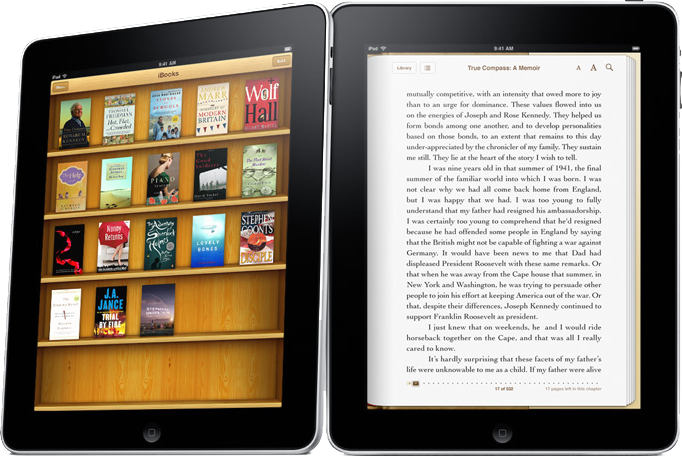Apple ridicules ebook pricing conspiracy theory of class action lawsuit filing
According to a report by PaidContent.org, Apple argued "that its business plan was to sell as many e-books as possible and that it had no incentive to raise prices. It also claims that is was a new and inexperienced player in a business in which Amazon dominated with 90 percent marketshare."
The plaintiffs in the case have based their claims largely upon Steve Jobs' comment to Walt Mossberg of the Wall Street Journal, which suggested that publishers "unhappy" with Amazon's efforts to mandate a standard $10 ebook price would likely just withhold their titles from Amazon's store.
Apple's attorneys say Jobs' words were being "mischaracterized" by the plaintiffs, explaining that Jobs simply thought Apple's business strategy was more attractive than Amazon's.
The plaintiffs in the case argue that Apple conspired with publishers to raise the price of ebooks in order to blunt the impact of Amazon's Kindle on the tablet market, something Apple's attorneys described as a nonsensical "Kindle Theory."
This “Kindle theory,†Apple's filing stated, does not "make sense on its own terms. For example, if Amazon was a 'threat' that needed to be squelched by means of an illegal conspiracy, why would Apple offer Amazon’s Kindle app on the iPad?"
Sarcastically alluding to Amazon's loss leader book pricing, Apple's legal argument added the zinger, "Why would Apple conclude that conspiring to force Amazon to no longer lose money on eBooks would cripple Amazon’s competitive fortunes?"
The filing further asked, "And why would Apple perceive the need for an illegal solution to the 'Kindle threat' when it had an obvious and lawful one which it implemented – namely, introducing a multipurpose device (the iPad) whose marketing and sales success was not centered on eBook sales?"
Apple pioneered the concept of selling digital content at a fixed low price in iTunes with 99 cent songs, followed by similarly low standard pricing of videos and movies, all prices the music labels and studios balked at supporting. Apple has since relaxed its standard pricing to allow publishers to sell their content at variable prices.
In ebooks however, Apple found such resistance for pushing the price of digital titles down to the $9.99 price set by Amazon that it allowed publishers to adopt their own pricing from the start, often closer to $12.99, under a model known as "agency pricing," the same model Amazon uses to sell Android apps.
Under Apple's agency pricing model, publishers selling titles in its iBookstore couldn't also sell their same titles at a lower price elsewhere, another term Amazon similarly sought to use to prevent Android app developers from undercutting its own sales.
Amazon Kindle users and other readers upset by the $2 difference in ebook prices set by Amazon and publishers working with Apple have asked the US Department of Justice to get involved, which has announced plans to sue Apple and book publishers Simon & Schuster, Hachette, Penguin, Macmillan and HarperCollins over the Kindle Theory conspiracy.
 Daniel Eran Dilger
Daniel Eran Dilger














 Amber Neely
Amber Neely
 Thomas Sibilly
Thomas Sibilly
 AppleInsider Staff
AppleInsider Staff
 William Gallagher
William Gallagher
 Malcolm Owen
Malcolm Owen
 Christine McKee
Christine McKee










53 Comments
I believe this is also known as "The Chewbacca defense."
Can we go back to the days of Law where my Uncle passed the Bar in '69 which required 3 days of oral examinations and 3 days of written examinations instead of 1/1?
We'd sure get higher quality lawyers and that would benefit society.
Apple's lawyers clearly come from the 3/3 days of law comprehension.
It would sound more like anti-trust/conspiracy if Apple HAD adopted the same model as Amazon.
I am wondering if this was bought to the justice's attention by someone who might have some skin in the game. Like a dominant player that had to completely change their deals once Apple entered the field.
I believe this is also known as "The Chewbacca defense."
"If Chewbacca lives on Endor, you must acquit! The defense rests."